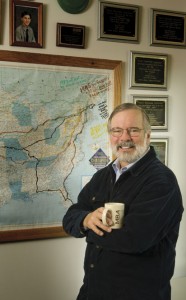Vtdigger.com
Editor’s note: This commentary is by Duncan McDougall, who is executive director of the Children’s Literacy Foundation. He lives in Waterbury Center.
When Muslim extremists attacked the Charlie Hebdo office in Paris, my wife, our 14-year-old son and I were traveling by ourselves in a remote area of an Islamic country. Instead of being frightening, the three weeks we spent surrounded by tens of thousands of Muslims gave us hope.
Every two years my wife and I take our son to a new part of the world to expose him to different cultures and peoples. This time we decided to visit Morocco so he could experience his first African country, his first Muslim country, and so he could practice his French, a language my wife and I both speak.
Morocco is a beautiful and geographically-diverse country located in northwestern Africa.
Of Morocco’s 33 million inhabitants, 99 percent are Muslims. I estimate we interacted with almost 2,500 people on our trip, ranging from brief exchanges, to long discussions or meals in someone’s home, and even though many people knew we were Americans not a single individual was anything but warm and welcoming to us.
I describe our Moroccan experiences not to argue that all Muslims wish us well, for that is clearly not the case, but rather to remind us not to paint all Muslims with the same brush.
Islam was a visible and ubiquitous part of daily life. Shopkeepers read scripture while waiting for customers. Friends in restaurants shared videos on their mobile phones of men singing holy verses. Mosques were everywhere. Five times a day the muezzin’s call to prayer echoed from nearby minarets, and many people stopped to pray.
These days, thanks to a rising tide of news stories about “Muslim extremists,” we assume those two words are inextricably linked. We did not find that to be the case. In fact, there were many things we admired about the Muslims we met. They were honest. Moroccan purchases often involve lively negotiations, but we never were cheated and I even had a storekeeper chase me down to give me my change. They were sober. In keeping with Quranic commandments, few Moroccans drink alcohol. And they were very family-oriented. Multiple generations often live together, and family and friends gathered regularly for tea and multi-hour meals.
Arabic and Berber are Morocco’s official languages, but almost everyone also speaks French, so we were able to have conversations with locals about life, culture and religion. We asked what they thought of the Charlie Hebdo shootings. Everyone absolutely condemned that violent act. They believed depicting images of the Prophet was blasphemy, but they said it was not up to any man to judge or punish the perpetrators. It was only up to Allah on the Day of Judgment.
I describe our Moroccan experiences not to argue that all Muslims wish us well, for that is clearly not the case, but rather to remind us not to paint all Muslims with the same brush. I’ve traveled in other Muslim countries in the past, including those considered “hardline” by the West, and I have always met with the same open-hearted welcome. In my experience, the vast majority of Muslims have no interest in hurting or attacking the West or the U.S. They may strongly disagree with some of our country’s actions or our culture, but they are far more interested in community, family, prosperity and peace.
My hope is that people of different cultures and faiths take the time to meet and get to know each other – either overseas or here at home – to discover how much we have in common. I also hope that over time the vast majority of Muslims who value peace take a much more active role in limiting the reach and influence of those who do not.






